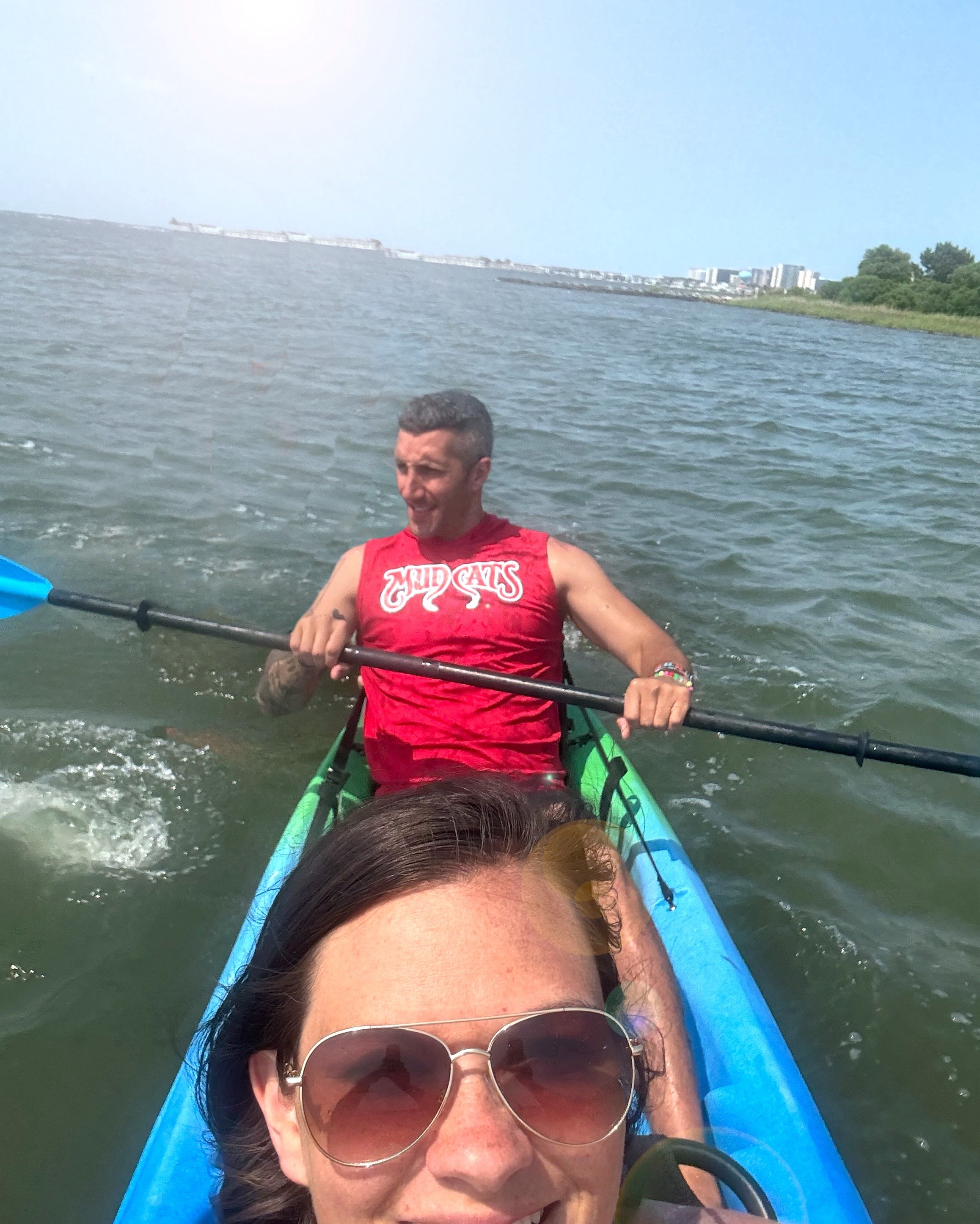Unplug for a Day ~ Reconnect for a Lifetime
From the Substack of Chris Sciullo “The Connected Parent” - @chrissciullo
Summer of '94.
I'm ten years old, standing in my front yard at 8 AM with a baseball glove and absolutely nothing planned. By noon, we'd organized pickup games, built forts, and lost ourselves in outdoor adventure.
The only interruption? When our parents finally called us home for dinner.
No adult scheduled any of it. No one documented it. We just lived minute by minute and enjoyed everything summer had to offer.
Summer once meant an escape from the constant demands and distractions of daily life.
Now we carry both in our pockets.
We take conference calls from the beach. Answer emails between innings. Plan "spontaneous" adventures while comparing them to everyone else's Instagram stories. The season that once meant total freedom has become just another backdrop for our always-on lives.
Our kids feel the invasion too. They've come to expect entertainment and stimulation at all times—even in summer, even outside, when they're supposed to be free.
But what if we could reclaim some of that old summer magic? What if unplugging wasn't just about turning things off, but about turning back toward what made childhood feel like childhood?
That's why I've been thinking a lot about the Global Day of Unplugging—the movement that changed everything for me. Two years ago, Unplug Collaborative's annual call to step away from screens for 24 hours became my first real commitment to digital wellness. It was my wake-up call as a parent, my entry point into this work that now defines my life.
And now, in a moment that feels beautifully full-circle, I get to write for the organization where it all started for me.
Because this movement isn't just about one weekend in March. It's a mindset we can adopt any day of the year. Especially now, when summer gives us permission to slow down and start fresh.
But What Happens After We Unplug?
This is the question that kept me awake after my first Global Day of Unplugging.
The day itself had been everything I hoped for. Real conversations. Present moments. The kind of connection that reminded me why I became a parent in the first place.
But Monday came, and so did the old patterns.
Because unplugging for a day is powerful… But what we return to matters just as much as what we step away from.
When the screens come back on… Does the overwhelm return too?
Do we fall right back into the same patterns that left us drained in the first place?
That's where holistic digital wellness comes in. And that's what Unplug Collaborative taught me to ask: What if unplugging isn't just a break—but a bridge to living differently?
My version of “multi-tasking”.
Unplugging Is the Start. H.E.A.L. Helps Us Keep Going.
In our home, that first Global Day of Unplugging was our wake-up call.
But it took a deeper shift to actually change how we lived.
We began using a simple framework called H.E.A.L.—a way to redesign not just our screen use, but our whole lifestyle around what matters most.
H - Habits
We replaced “morning phone check” with morning walks, music, or shared breakfast. We added cues—like a charging station in the hallway instead of the nightstand—so our first and last moments of the day belonged to each other, not our screens.
E - Environment
We swapped phone alarms for real alarm clocks. We set up more central charging stations to keep phones out of sight. TVs reverted back to TVs instead of giant smartphones. We redesigned our living space so the easy choice was the healthy choice.
A - Alternatives
We offered go-to activities our kids could reach for instead of devices. When boredom hit, they knew where to find Legos, drawing supplies, or ways to help make breakfast.
L - Limits
We set clear, family-agreed tech boundaries that supported real connection. Not rigid rules that breed resentment, but collaborative agreements everyone could live with.
We didn't just turn off devices—we rebuilt our life around what matters most.
The Power of Both/And
Here's what I love about movements like Global Day of Unplugging and approaches like H.E.A.L.: they're not competing. They're complementary.
Unplug Collaborative creates the moment—that collective pause that reminds us what's possible when we step away from the noise and step into real connection. Since 2009, they've helped over 300,000 people in 20+ countries experience what life feels like when we're not constantly tethered to our devices.
Holistic digital wellness helps you live that moment every day.
One creates awareness. The other creates transformation.
Unplug to Reimagine What's Possible
This isn't just about one day.
It's about what that one day can spark.
The kind of reconnection that turns into a new habit. The kind of quiet that reminds us how loud our lives have become. The kind of presence that makes childhood feel like childhood again.
And summer might be the perfect time to lean into it.
Because when we're not rushing between school pickups and sports practices, we have space to start fresh and reset together. To make unplugging not just a break—but a way of being.
Ready to Begin?
If you've felt the pull to step away this summer—whether for a moment, a morning, or an entire day—remember:
You're not just stepping away from your phone. You're stepping back into your life.
The Global Day of Unplugging happens every March, but the invitation is always here. Join their community, explore their incredible resources (200+ unplugging ideas!), or simply commit to your own 24-hour reset with your family.
And if you want support staying there once you've unplugged, we're here for the journey.
Because this isn't just about spending less time online…
It’s about spending more time in real life. ✌️
If any of this hit home, consider supporting Unplug Collaborative. They're a small team creating space for what matters most…and we all need more of that. [SUPPORT THEIR MISSION]
I'm Christopher Sciullo, creator of the H.E.A.L. Method. I help parents balance their own tech use while guiding kids toward healthier screen habits—so we can all rediscover the wonder of life beyond the screen.


